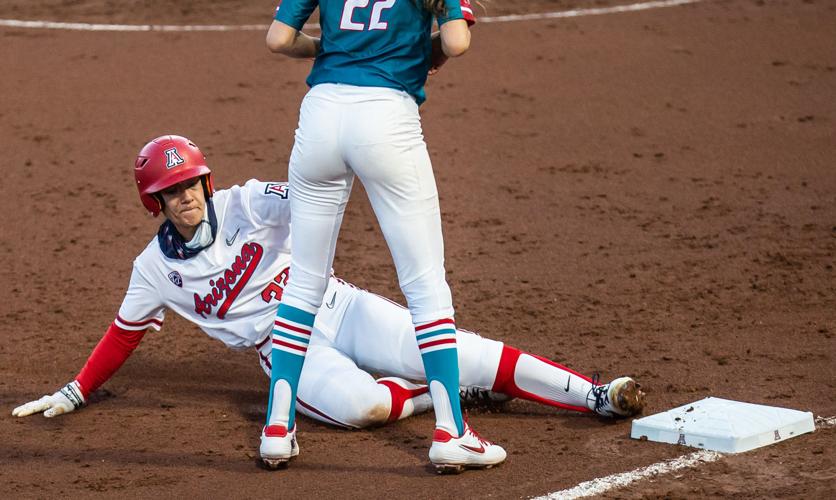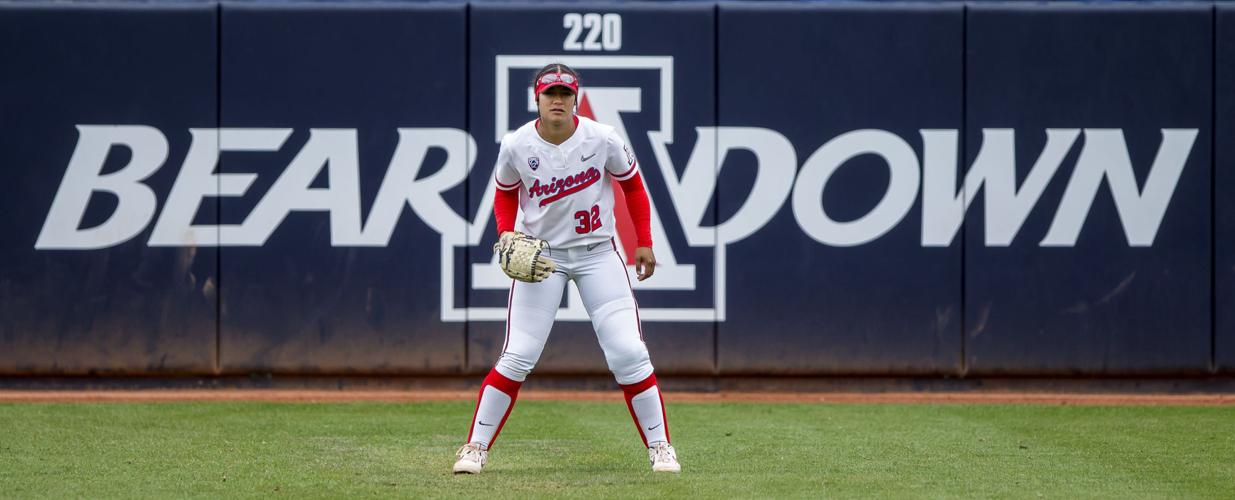The Arizona Wildcats’ baseball game against Wichita State on Thursday night marked the end to one of the stranger side effects of the COVID-19 pandemic: fanless sports.
Empty arenas and uncertainty have been the norm for sports at all levels since the coronavirus pandemic began a year ago. As competition began again, athletes found a new appreciation for the games they play and developed new strategies to stay motivated regardless of who was cheering them on.
At the University of Arizona, counselors Rachel Webb and Michelle Skog are on the front lines of mental health as part of the Commitment to Athlete’s Total Success (CATS) clinical and sport psychology services. With the pandemic changing every aspect of normality, managing life outside of competition has become increasingly important. For Webb, sports psychology is another way for athletes to optimize performance.
“Your brain is what controls everything,” Webb said. “Your body is just along for the ride.”
Arizona’s athletes have been dealing with uncertainty for most of the last year, since the pandemic shut down practices and games. Skog said she reminds athletes that the pandemic, which is still ongoing, remains a very fluid situation. She urges athletes to focus on what’s within their control. For most athletes, that’s training and preparation.
The hard work they put in during the uncertain times paid off when practices and games resumed. Although it wasn’t the same with no fans and a constant focus on COVID-19 protocols, the new normal, many said, was worth it.
“I think we’ve all come back with the mindset of we are going to take every game like it’s our last cause we know what it feels like for it to be taken away,” UA softball player Alyssa Palomino-Cardoza said. “We have kind of found that love again to just go out and play and not care about anything else. ”
UA women’s soccer player Madison Goerlinger echoed Palomino-Cardoza’s sentiments.
“I was so grateful to be back playing again and it just made me realize how much I enjoy playing the game,” she said.
Of course, returning to stadiums without fans was a reminder that sports are not the same in a pandemic. Some players said that without the motivating roar of the crowd, they began to rely on their teammates.
Palomino-Cardoza said the softball team created its own energy from within the dugout of Hillenbrand Stadium.
Goerlinger said the first game without fans in the stands — a Feb. 7 win over UTEP — was bizarre and required a lot of self-motivation. But she was excited to be able to play, and that alone fired her up.
The UA’s decision to allow four family members per player into games last month provided a boost to the players. Goerlinger scored her first goal of the season in front of her grandparents in a Feb. 26 game against UCLA, and leaped into the air in celebration.
Palomino-Cardoza’s grandmother was in the stands on Feb. 25, the first day family members were allowed. Arizona put on a show, posting 12 first-inning runs on the way to a 12-0 win over BYU in the Wildcat Invitational.
“That’s our family,” Palomino-Cardoza said, “and they have been our fans and supporters since we started playing this game.”
Some athletes, Webb said, seemed to enjoy playing without fans.
There are fewer external distractions outside of the game, making it easier to focus. Many athletes want to replicate what they’ve been doing in practice, and games played in front of empty seats can make it easier to do so.
“Then there’s people on the other end of the spectrum who never paid attention … whether there is a crowd or not (because) they are so zoned in and so focused on what they are doing that anything could be happening outside of them,” Webb said. “But I think it can be more of a slippery slope for an athlete to lean on an uncontrollable external factor to get them to where they need to be in terms of competing.”
Skog says the lack of fans and crowd stimulation hasn’t been a problem for the UA athletes she’s spoken with. The motivation to compete at the highest level has not changed, she said.
Regardless of who’s watching.
“They seem to be pretty hyped up no matter what,” she said. “They’re already fired up, because they are so ready to compete and because seasons were cut short last year and they are so grateful to just be doing their sport it’s just becoming something that’s like, ‘Oh that’s new, too; great, moving on.”







